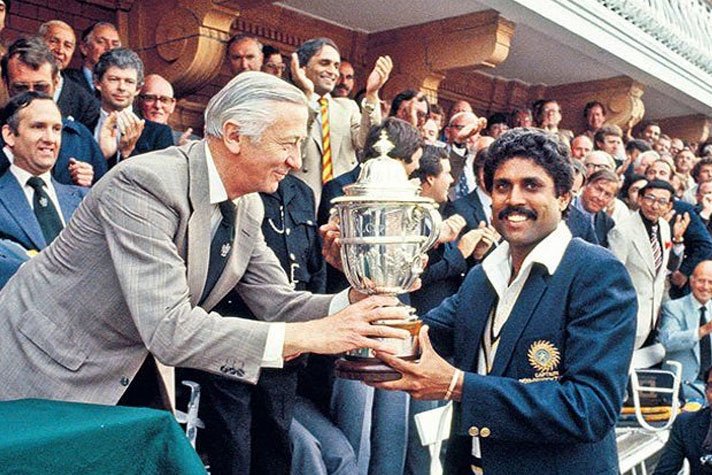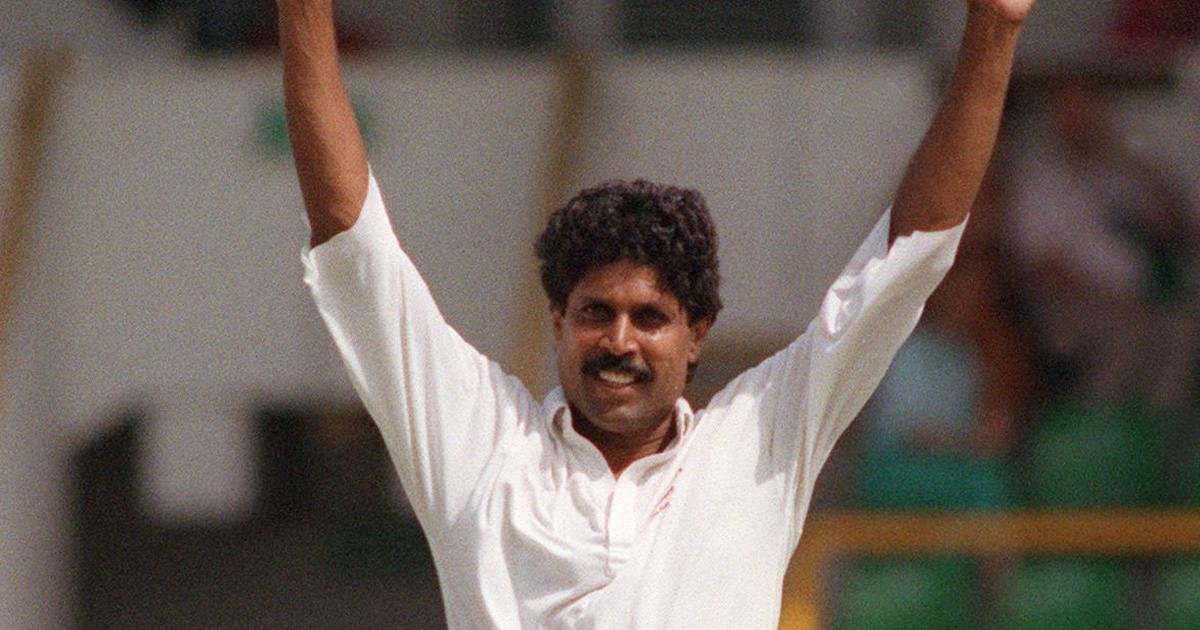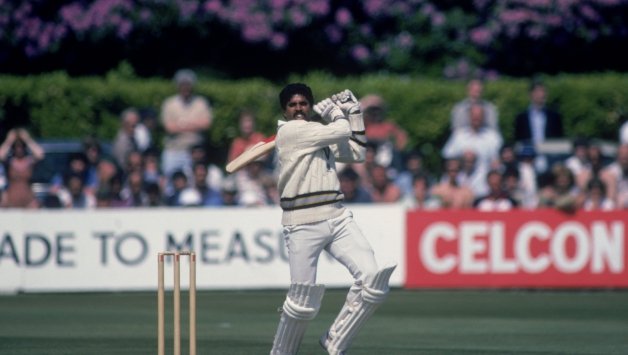On This Day In 1983- A Miracle That Changed World Cricket Forever
Updated - 25 Jun 2021, 07:44 PM

25 June. Twenty-five June. Has there ever been more historic date than the 25th of June in the annals of Indian cricket? It was on this date in 1932 when India-still under British rule- played its maiden Test. 51 years later, the nawabs and maharajas had gone, to be replaced by middle-class youth, as a 24-year-old Kapil Dev, who was neither college educated nor a brahmin led India to a heist that would change the serenity of world cricket forever.
It was on this day 37 years ago when Kapil’s Devils went on to script one of the greatest miracles in the history of sport; one that not only changed Indian cricket forever but it also paved way for a whirlwind change in the world cricket. One-day cricket was just 12 years old in 1983 and India, much like T20 cricket two decades later, was pretty apprehensive about the format since its inception.
They thought that One-day cricket was a mere pimple on the face of real cricket, one that would disappear quickly. Little that they knew that it was here to stay forever.
Also Read: ‘Virat Kohli Was Just ‘Another Batsman’ For Delhi Daredevils In IPL 2008 Auction’
Kapil Dev’s appointment as captain was one of the turning points that led to the 1983 World Cup win

India had played just 40 ODIs in the decade or so of existence of One-day International cricket and their indifferent attitude towards the format was truly visible from their opening World Cup fixture in 1975 where Sunil Gavaskar scored a total of 36 runs in 60 overs.
Gavaskar’s approach was a reflection of the mindset that Indian cricket had about limited-overs cricket and more embarrassment was to follow when they were beaten by Sri Lanka, who was not a Test-playing nation yet, in the following World Cup.
The winds of change were finally triggered in 1980 when selectors decided to make a young Kapil Dev as the captain of the Indian team.
Under Dev, India beat Sri Lanka 3-0 and lost to Pakistan 1-3 but the nucleus of the team was beginning to take shape. From relying on the spin quartet to bolstering the attack with medium pace all-rounders like Madan Lal, Balwinder Sandhu, Roger Binny, Jimmy Amarnath, India’s strategy was clear: rely on the batsmen to post runs on the scoreboard and then leave it to the bowlers to be restrictive rather than attacking.
A win that gave India the confidence that they could possibly beat the best team in the world
72 days before the World Cup, India got a major fillip when they beat the might West Indies at their home turf in Berbice, Guyana. And, incidentally, it was Gavaskar again, who played one of the most crucial knocks for India in the pre-83 era.
The opener scored 90 while Kapil Dev racked up a whirlwind 72 off 38 balls as India finished at 5-282 in 47 overs. In reply, West Indies could only manage 255 and lost by 27 runs.
From no-hopers to World Cup finalists
When Kapil Dev and his team traveled to England to take part in the World Cup in the summer of 1983, the odds stacked against them were 66:1. They had won 12 ODIs in their 40 game history and only one on English soil- against East Africa.
India started their campaign on an imperious note as they defeated defending champions West Indies by 34 runs to assert that their win in Guyana wasn’t a fluke. They then swatted aside Zimbabwe in the second game by five wickets before going down to Australia [by 162 runs] and West Indies [by 66 runs] in the following fixtures.

England was expected to breeze past India in the semi-finals but the hosts came in for a huge shock as an all-rounder performance from Mohinder Amarnath [2-27 & 46] and half-centuries from Sandeep Patil [61] and Yashpal Sharma [51 off 32 balls] paved way for a six-wicket win to seal a date with world champions West Indies in the finals.
25 June 1983. India vs West Indies. Prudential World Cup Final. Lord’s Cricket Ground, London.
And, so the stage was set for the world-beaters vs the slayers.
A photo from the Indian innings at the 1983 World Cup final. I spent the pre-lunch session (ODIs back then had lunch at tea breaks) on the grass in front of the Grandstand. It was harder to take photos as it was so packed that everyone was constantly being jostled #WorldCup1983 pic.twitter.com/HOpaup04HZ
— Historic Cricket Pictures (@PictureSporting) June 25, 2020
West Indies won the toss and on a green top Lord’s wicket decided to unleash their fearsome foursome on the Indian batsman. Kris Srikkant scored a whirlwind 38- the highest individual score of the match- but his wicket triggered a collapse.
The Men in Blue were eventually bowled out for 183 and at the halfway mark, it looked like the West Indies will romp to their third World Cup title.
https://twitter.com/PictureSporting/status/1276050729229332480
Windies lost Gordon Greenidge for a 12-ball 1 thanks to an inswinger from Balwinder Singh Sandhu, which brought the king Viv Richards to the crease. Viv slowly started taking an Indian bowling attack to the cleaners and unable to see the assault, both Kapil Dev and Madan Lal’s wife proceeded to leave the stadium.
Little they’d realized that the miracle was just about to unfold. And, it all happened at the score of 57 when Kapil Dev took a brilliant backward running catch to dismiss Richards. The winds of change had started to blow and soon the West Indies found themselves in an abyss, reeling at 6-76.
Geoff Dujon [25] and Malcolm Marshall [18] tried their level best to stage a recovery but it was India’s day, it was India’s moment of truth. And, that moment finally arrived when Mohinder Amarnath trapped Michael Holding LBW.
https://twitter.com/im_yash2307/status/1275864878583029767
From no-hopers to world champions, India’s renaissance under a 24-year-old Kapil Dev was complete. One-day cricket soon transformed from being dog’s dinner to Emperor’s feist, much like what happened with T20 cricket post-India T20 WC win in 2007. England and Australia soon lost their veto power, the world cup soon moved out of England, a whole host of 10-year-olds like Sachin Tendulkar, Rahul Dravid got enthralled by the magnanimity of the win and decided to take up the game, and cricket was never the same again.
Also Read: India Should Amend Match-Fixing As ‘Criminal Offence’: ICC
Tagged:
1983 World Cup Kapil Dev Kris Srikkanth Madan Lal Mohinder Amarnath Roger Binny Sandeep Patil Sunil Gavaskar Syed Kirmani



